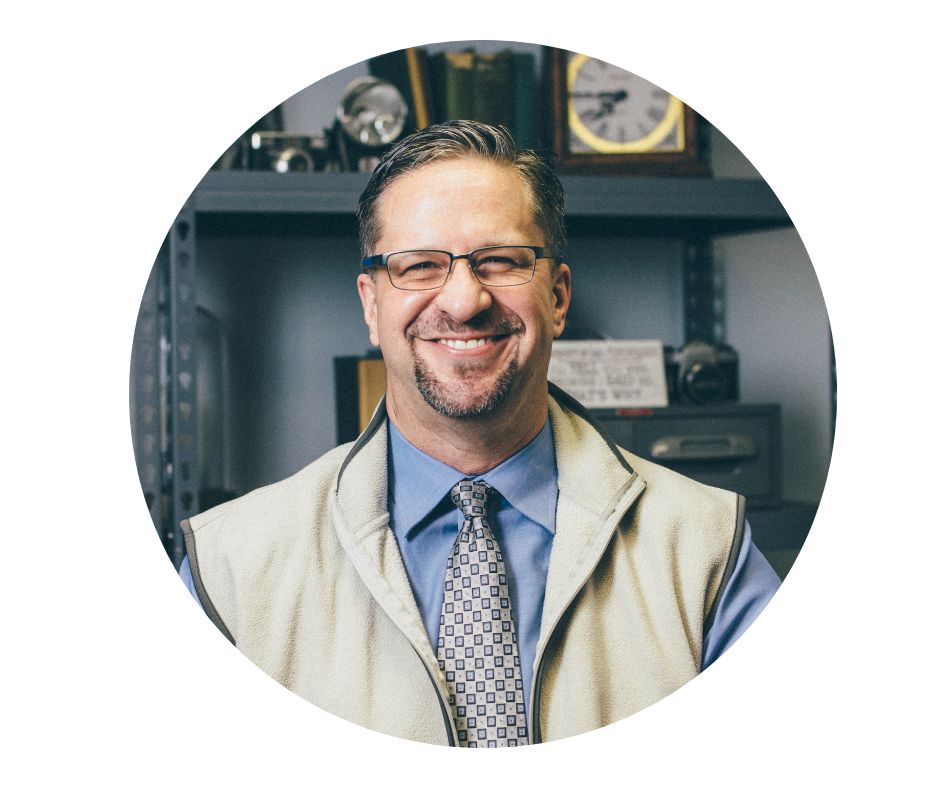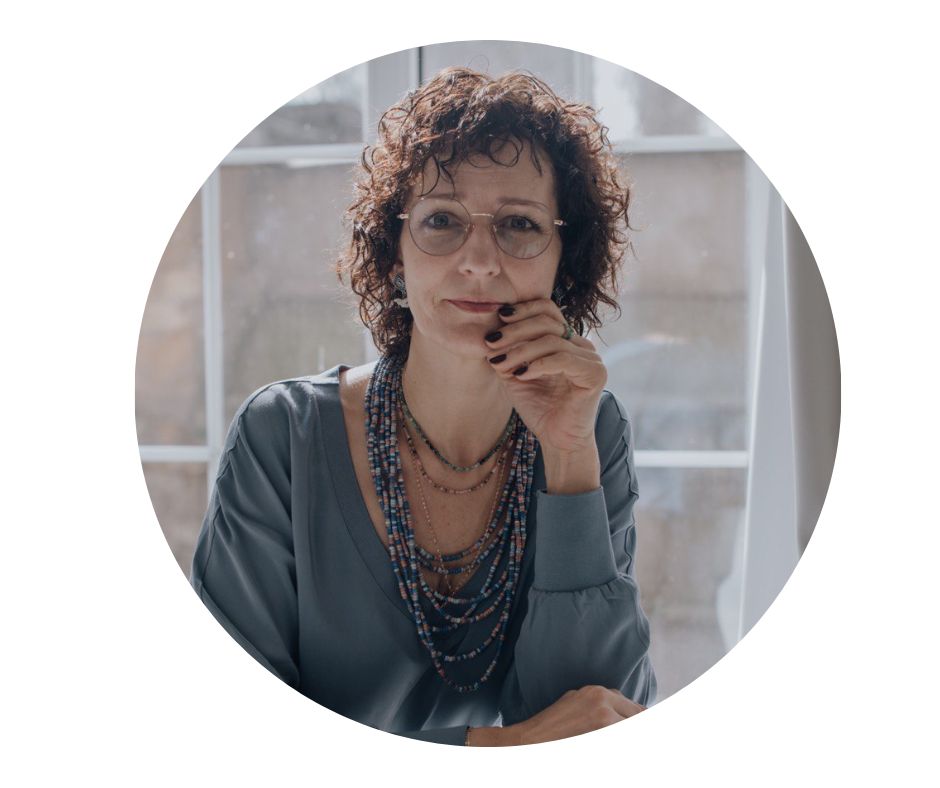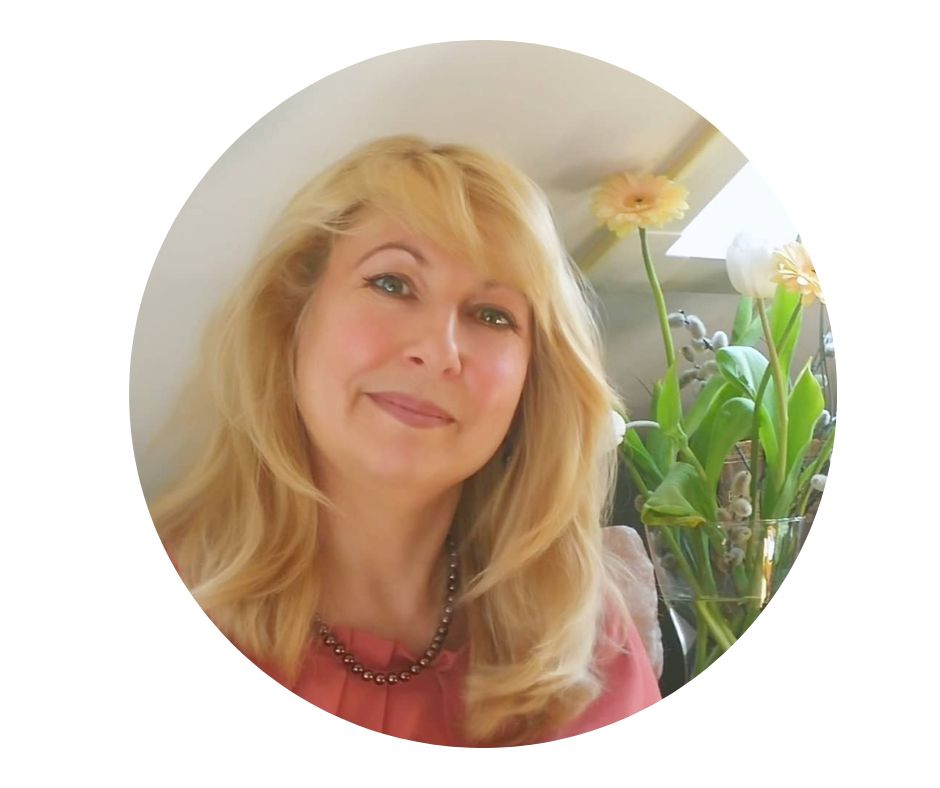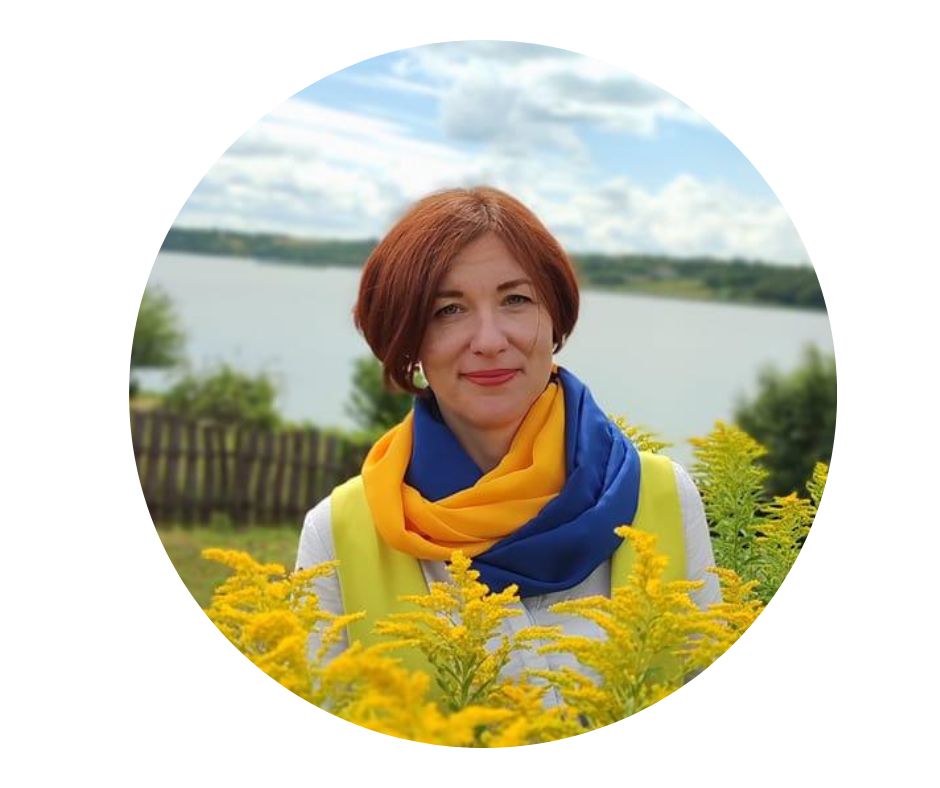“Helping those who help” psychological aid training: PTSD and life in prolonged stress
On July 1st and 2nd, 2023, Human Rights Vector held a training program in Kyiv for psychological professionals working with people affected by war in Ukraine: “PTSD and life in prolonged stress”.
This was conducted as part of the NGO’s “Helping those who help” project. The project aims to support the people who are working with those affected by war. It includes trainings, conferences, and other programs to increase their skills and resilience, and to create a space for communication and collaboration between people working in similar fields with similar issues and experiences.
To date, a total of 437 specialists who provide psychological, medical, social, and legal assistance are registered in the “Helping those who help” program. This once again emphasizes the need for measures to support and share the experience of specialists in the aid professions. And, for us at Human Rights Vector, this means that we are moving in the right direction and doing important work to help in this difficult time.
The 2-day training consisted of lectures and practical exercises with a group of 28 psychologists, psychiatrists, aid workers, and other specialists.
Our 4 trainers delivered the following lectures:
 Dr. Joshua Kreimeyer (USA), Ph.D., Certified Professional Counselor (LPC).
Dr. Joshua Kreimeyer (USA), Ph.D., Certified Professional Counselor (LPC).
“Calm in the chaos: Helping military and veteran families not just survive, but thrive, during wartime”
Dr. Joshua Kreimeyer is a US military veteran and certified marriage and family therapist. His lecture was about how mental health workers can support families of servicepeople and veterans during wartime, not only to survive, but to thrive. A lot of what he shared in his lecture came from lessons he learned with his own family and their experience of war.
He began with a powerful message of support from his homeland of the USA: «even if you don't see it or feel it, the rest of the world is still supporting you and Ukraine».
Dr. Kreimeyer talked about the power of routine and “calm” as methods of survival in chaotic and constantly-stressful environments, such as war. The lecture was live-translated from English to Ukrainian for the event.
Joshua is a Board Certified Marriage and Family Therapist (LMFT), and a Supervisor approved by the American Association for Marriage and Family Therapy (AAMFT).
Dr. Kreimeyer graduated from Minnesota State University with a bachelor's degree in recreation. From there he joined the US Army as a linguist-cryptologist. He and his family served in California, Texas and Germany. He took part in combat operations in Kosovo (1999) and Iraq (2003). After an injury that made reenlistment impossible, he transitioned to civilian life and took advantage of a vocational rehabilitation program to retrain as a clinical mental health counselor. He also received a Post Graduate Certificate in Marriage and Family Therapy and now practices in the US as a Licensed Professional Counselor, Licensed Marriage and Family Therapist and Supervisor. He has worked in community outpatient clinics, private practice, the drug and alcohol hospital program of the US Bureau of Prisons, and for several years as an adjustment counselor and family therapist for the US Department of Veterans Affairs. In addition to his clinical work, Dr. Kreimeyer has taught family therapy since 2016, first as a faculty member at Regis University as coordinator of their Military Family Counseling Graduate Certificate Program, and most recently (January 2023) as an Associate Professor of Clinical mental health counseling at Colorado Christian University. Dr. Kreimeyer received his PhD in Counselor Training and Supervision from Regent University.
Dr. Kreimeier is committed to helping service members and their families navigate the transition from war and military to civilian life, as well as to mitigate the effects of trauma. While studying at Regent University, Dr. Kreimeyer participated in pioneering approaches to provide trauma-informed psychological counseling in Ukraine. He was part of the team that helped establish the International Institute of Postgraduate Education in Kyiv, Ukraine (americanprogram.net/) and its associated community service clinic (odukraine.com/). Since 2019, Dr. Kreimeyer has also conducted numerous trainings for Ukrainian psychologists, as well as facilitated retreats for Ukrainian military families through the International Office of the International Organization for Migration.
 Ruslana Rudenko, psychoanalysis-oriented psychologist working with children, adolescents, adults and families.
Ruslana Rudenko, psychoanalysis-oriented psychologist working with children, adolescents, adults and families.
“Compassion fatigue. ‘Safe places’”
Ruslana Rudenko talked about compassion fatigue among mental health professionals when working with people affected by war and the importance of “safe” environments for mental health recovery, especially when it comes to PTSD.
Ruslana has additional specialization in trauma work and Jungian Sand Play therapy. Supervisor, teaching analyst at Odesa Psychoanalytic Society (OPS). Teacher at the Odesa Psychoanalytic Institute of Postgraduate Education.
Ruslana holds lectures for parents and OPS students on attachment theory, child psychology, play psychotherapy and child psychoanalysis, as well as non-analytic methods of trauma therapy. She participates in the organization of seminars and conferences of the OPS.
Social activities: organization of social projects for overcoming trauma and preventing psychological burnout for volunteers, servicemen, IDPs and social workers; psychological support for military personnel and their family members.
 Iryna Ratzke-Rybak, psychoanalyst, group analysis trainer, family therapist, supervisor.
Iryna Ratzke-Rybak, psychoanalyst, group analysis trainer, family therapist, supervisor.
“SEE FAR CBT: Treatment protocol for PTSD and related anxiety disorders”
Iryna Ratzke-Rybak talked about the treatment protocol for anxiety and stress-related disorders, “SEE FAR CBT”, developed in Israel by Prof. Mooli Lahad & Miki Doron, and how it works with PTSD and other related disorders.
Iryna is the Head of the Department of Psychoanalytic Psychotherapy for Couples and Families, a supervisor and training analyst at the Association of Psychologists and Psychotherapists of Ukraine (APPU), a delegate of the European Federation of Psychoanalysts and Psychotherapists (EFPP), a full member of the Group Analytic Society International (GASI). She has more than 20 years of experience as a therapist and training analyst in individual and group therapy. An important aspect of her work is the training of specialists and supervision of other supervisors. She has international training in trauma work (Israel).
Iryna provides group psychological and psychosocial support to women and children who are forced migrants from Ukraine in Germany at EBW (Evangelical Academy).
 Natalia Pidkalyuk, psychiatrist, Trauma Focus trainer (Institute of Neuropsychotherapy, Austria), head of IPSI NGO.
Natalia Pidkalyuk, psychiatrist, Trauma Focus trainer (Institute of Neuropsychotherapy, Austria), head of IPSI NGO.
“Differential diagnostics of stress disorders”
Natalia Pidkalyuk discussed the differentiation and nuances in diagnoses of stress disorders and how this affects the approach to treatment.
Natalya participates in educational projects on group psychoanalysis (APPU), clinical hypnosis (APPU), reconsolidation of traumatic memories (randrproject), and crisis leadership programs (Center for Humanitarian leadership).
Natalya has 20 years of professional experience, 12 of which she worked in a psychiatric hospital in various departments (acute conditions, neuroses, gerontology, she headed the department of coercive medical measures with enhanced supervision). In 2017, a center for medical and psychological rehabilitation of stress disorders was created as part of the polyclinic together with the local authorities. Since December 2021, she has been conducting private practice and is the head of an NGO: IPSI.
Since the beginning of the full-scale war, IPSI has provided psychosocial support services to people affected by the war, with individual consultations and group classes. In total, supporting more than 10,000 people. This work is done both on the grounds of the Center and in the Khmelnytskyi region. It also conducts trainings for people in aid professions on the prevention of professional burnout, and organizes educational events for psychologists.
Thanks to everyone involved
At the end of the training, participants received certificates confirming their completion of the training. The participants expressed gratitude for the opportunity to come together to work through common problems that they all face and better adapt to the new circumstances in Ukraine.
We at Human Rights Vector are grateful to the trainers and participants for an amicable and productive meeting.
As one participant noted in the discussion, “this event is about life”; when everything around us is about death, it's good to come together and discuss living.
For reference: The project «Helping those who help» is implemented by the NGO Human Rights Vector with financial support from the European Union, within the framework of the Stiykist Program. The Stiykist Program is a 30-month project funded by the European Union and implemented by ERIM in partnership with the Black Sea Trust, the Eastern Europe Foundation, the Human Rights Houses Foundation and the Human Rights House in Tbilisi. The project is aimed at strengthening the resilience and effectiveness of war-affected CSOs and civil society workers affected by the war in Ukraine, including independent media and human rights defenders.
This was conducted as part of the NGO’s “Helping those who help” project. The project aims to support the people who are working with those affected by war. It includes trainings, conferences, and other programs to increase their skills and resilience, and to create a space for communication and collaboration between people working in similar fields with similar issues and experiences.
To date, a total of 437 specialists who provide psychological, medical, social, and legal assistance are registered in the “Helping those who help” program. This once again emphasizes the need for measures to support and share the experience of specialists in the aid professions. And, for us at Human Rights Vector, this means that we are moving in the right direction and doing important work to help in this difficult time.
The 2-day training consisted of lectures and practical exercises with a group of 28 psychologists, psychiatrists, aid workers, and other specialists.
Our 4 trainers delivered the following lectures:
 Dr. Joshua Kreimeyer (USA), Ph.D., Certified Professional Counselor (LPC).
Dr. Joshua Kreimeyer (USA), Ph.D., Certified Professional Counselor (LPC).“Calm in the chaos: Helping military and veteran families not just survive, but thrive, during wartime”
Dr. Joshua Kreimeyer is a US military veteran and certified marriage and family therapist. His lecture was about how mental health workers can support families of servicepeople and veterans during wartime, not only to survive, but to thrive. A lot of what he shared in his lecture came from lessons he learned with his own family and their experience of war.
He began with a powerful message of support from his homeland of the USA: «even if you don't see it or feel it, the rest of the world is still supporting you and Ukraine».
Dr. Kreimeyer talked about the power of routine and “calm” as methods of survival in chaotic and constantly-stressful environments, such as war. The lecture was live-translated from English to Ukrainian for the event.
Joshua is a Board Certified Marriage and Family Therapist (LMFT), and a Supervisor approved by the American Association for Marriage and Family Therapy (AAMFT).
Dr. Kreimeyer graduated from Minnesota State University with a bachelor's degree in recreation. From there he joined the US Army as a linguist-cryptologist. He and his family served in California, Texas and Germany. He took part in combat operations in Kosovo (1999) and Iraq (2003). After an injury that made reenlistment impossible, he transitioned to civilian life and took advantage of a vocational rehabilitation program to retrain as a clinical mental health counselor. He also received a Post Graduate Certificate in Marriage and Family Therapy and now practices in the US as a Licensed Professional Counselor, Licensed Marriage and Family Therapist and Supervisor. He has worked in community outpatient clinics, private practice, the drug and alcohol hospital program of the US Bureau of Prisons, and for several years as an adjustment counselor and family therapist for the US Department of Veterans Affairs. In addition to his clinical work, Dr. Kreimeyer has taught family therapy since 2016, first as a faculty member at Regis University as coordinator of their Military Family Counseling Graduate Certificate Program, and most recently (January 2023) as an Associate Professor of Clinical mental health counseling at Colorado Christian University. Dr. Kreimeyer received his PhD in Counselor Training and Supervision from Regent University.
Dr. Kreimeier is committed to helping service members and their families navigate the transition from war and military to civilian life, as well as to mitigate the effects of trauma. While studying at Regent University, Dr. Kreimeyer participated in pioneering approaches to provide trauma-informed psychological counseling in Ukraine. He was part of the team that helped establish the International Institute of Postgraduate Education in Kyiv, Ukraine (americanprogram.net/) and its associated community service clinic (odukraine.com/). Since 2019, Dr. Kreimeyer has also conducted numerous trainings for Ukrainian psychologists, as well as facilitated retreats for Ukrainian military families through the International Office of the International Organization for Migration.
 Ruslana Rudenko, psychoanalysis-oriented psychologist working with children, adolescents, adults and families.
Ruslana Rudenko, psychoanalysis-oriented psychologist working with children, adolescents, adults and families.“Compassion fatigue. ‘Safe places’”
Ruslana Rudenko talked about compassion fatigue among mental health professionals when working with people affected by war and the importance of “safe” environments for mental health recovery, especially when it comes to PTSD.
Ruslana has additional specialization in trauma work and Jungian Sand Play therapy. Supervisor, teaching analyst at Odesa Psychoanalytic Society (OPS). Teacher at the Odesa Psychoanalytic Institute of Postgraduate Education.
Ruslana holds lectures for parents and OPS students on attachment theory, child psychology, play psychotherapy and child psychoanalysis, as well as non-analytic methods of trauma therapy. She participates in the organization of seminars and conferences of the OPS.
Social activities: organization of social projects for overcoming trauma and preventing psychological burnout for volunteers, servicemen, IDPs and social workers; psychological support for military personnel and their family members.
 Iryna Ratzke-Rybak, psychoanalyst, group analysis trainer, family therapist, supervisor.
Iryna Ratzke-Rybak, psychoanalyst, group analysis trainer, family therapist, supervisor.“SEE FAR CBT: Treatment protocol for PTSD and related anxiety disorders”
Iryna Ratzke-Rybak talked about the treatment protocol for anxiety and stress-related disorders, “SEE FAR CBT”, developed in Israel by Prof. Mooli Lahad & Miki Doron, and how it works with PTSD and other related disorders.
Iryna is the Head of the Department of Psychoanalytic Psychotherapy for Couples and Families, a supervisor and training analyst at the Association of Psychologists and Psychotherapists of Ukraine (APPU), a delegate of the European Federation of Psychoanalysts and Psychotherapists (EFPP), a full member of the Group Analytic Society International (GASI). She has more than 20 years of experience as a therapist and training analyst in individual and group therapy. An important aspect of her work is the training of specialists and supervision of other supervisors. She has international training in trauma work (Israel).
Iryna provides group psychological and psychosocial support to women and children who are forced migrants from Ukraine in Germany at EBW (Evangelical Academy).
 Natalia Pidkalyuk, psychiatrist, Trauma Focus trainer (Institute of Neuropsychotherapy, Austria), head of IPSI NGO.
Natalia Pidkalyuk, psychiatrist, Trauma Focus trainer (Institute of Neuropsychotherapy, Austria), head of IPSI NGO.“Differential diagnostics of stress disorders”
Natalia Pidkalyuk discussed the differentiation and nuances in diagnoses of stress disorders and how this affects the approach to treatment.
Natalya participates in educational projects on group psychoanalysis (APPU), clinical hypnosis (APPU), reconsolidation of traumatic memories (randrproject), and crisis leadership programs (Center for Humanitarian leadership).
Natalya has 20 years of professional experience, 12 of which she worked in a psychiatric hospital in various departments (acute conditions, neuroses, gerontology, she headed the department of coercive medical measures with enhanced supervision). In 2017, a center for medical and psychological rehabilitation of stress disorders was created as part of the polyclinic together with the local authorities. Since December 2021, she has been conducting private practice and is the head of an NGO: IPSI.
Since the beginning of the full-scale war, IPSI has provided psychosocial support services to people affected by the war, with individual consultations and group classes. In total, supporting more than 10,000 people. This work is done both on the grounds of the Center and in the Khmelnytskyi region. It also conducts trainings for people in aid professions on the prevention of professional burnout, and organizes educational events for psychologists.
Thanks to everyone involved
At the end of the training, participants received certificates confirming their completion of the training. The participants expressed gratitude for the opportunity to come together to work through common problems that they all face and better adapt to the new circumstances in Ukraine.
We at Human Rights Vector are grateful to the trainers and participants for an amicable and productive meeting.
As one participant noted in the discussion, “this event is about life”; when everything around us is about death, it's good to come together and discuss living.
For reference: The project «Helping those who help» is implemented by the NGO Human Rights Vector with financial support from the European Union, within the framework of the Stiykist Program. The Stiykist Program is a 30-month project funded by the European Union and implemented by ERIM in partnership with the Black Sea Trust, the Eastern Europe Foundation, the Human Rights Houses Foundation and the Human Rights House in Tbilisi. The project is aimed at strengthening the resilience and effectiveness of war-affected CSOs and civil society workers affected by the war in Ukraine, including independent media and human rights defenders.

Comments ()